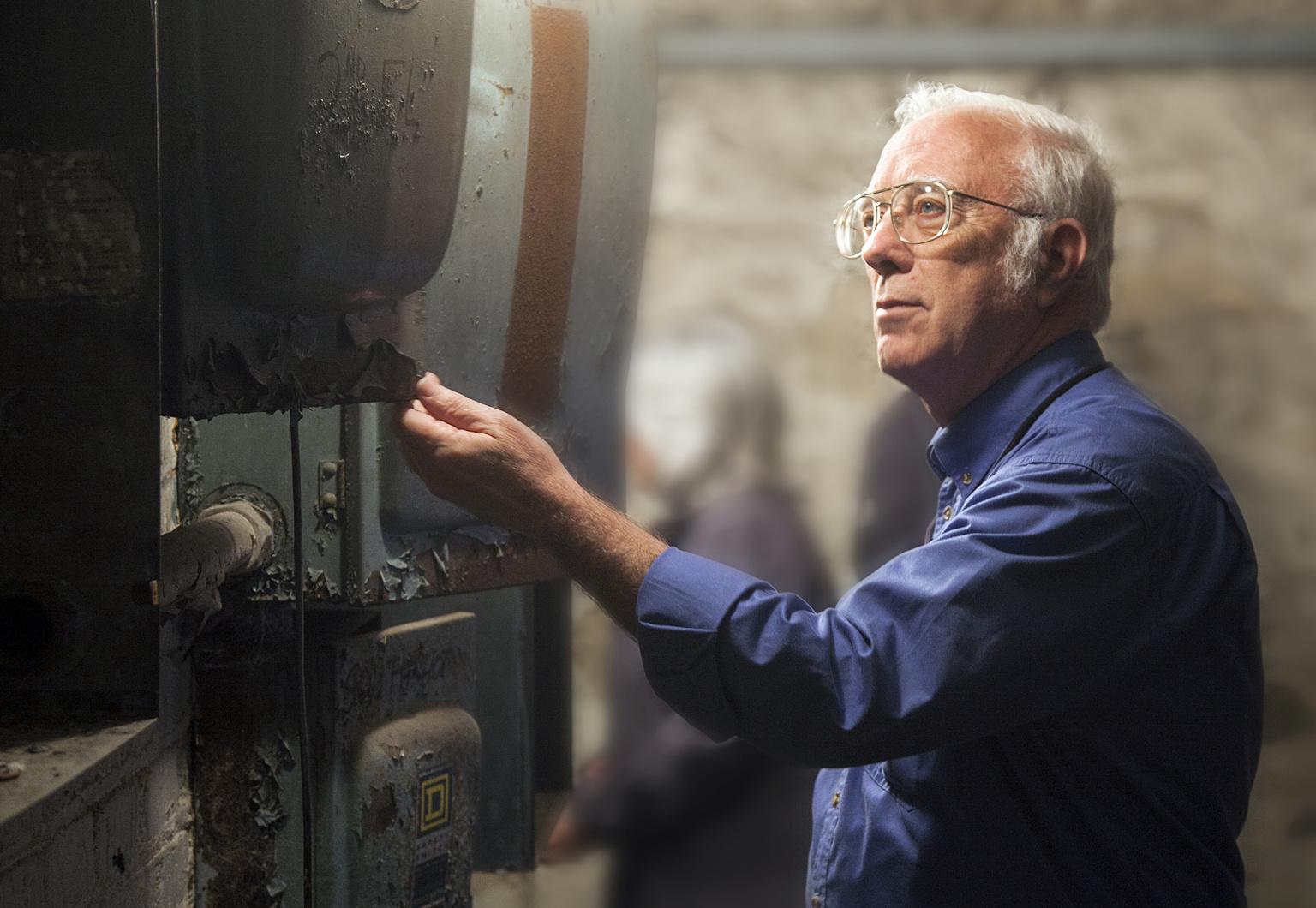Chris Straw chuckles at the thought of a typical day.
As Springfield’s director of Building Development Services (BDS), he arrives at the office at 7 a.m., facing 15 to 20 emails and another 10 calls to return.
Safety is always at the forefront of his duties.
A licensed architect, Straw’s department (BDS) ensures the community’s buildings are safe by issuing permits for all phases of construction, and by testing and awarding skill-based certificates to electricians, plumbers, gas fitters and mechanical craftsmen so they can operate in Springfield
After nearly 20 years with the City, he will retire in January.
“It’s time to cut back, do some work around the house, spend more time with family. I am a workaholic,” said the 67-year-old.
What Straw will miss most is interacting with the community.
Since becoming BDS director in 2010, he has focused on improving education, customer service and relationships with citizens.
Evidence of this success comes from the increasing number of citizen service calls to his department addressing a variety of nuisance complaints. Last fiscal year, they received 10,000; and he predicts it will eclipse 12,000 this year.
While many people would not see complaint calls as a good thing, Straw embraces them because it means he’s doing his job.
He credits this increase to the 2015 Community Listen tour in Springfield’s Zone 1 neighborhoods.
“When the Zone Blitz was conducted, chronic nuisance properties were the number one concern. Since that time there has been improved citizen involvement. It’s an education process. Complaints can range from weeds, trash, to abandoned or dangerous properties,” Straw said.
If there is a complaint, a compliance letter is first sent out to notify the property owner that they are in violation of something and need to correct it.
The compliance rate is 65-70 percent.
But there are some chronic nuisance properties which are defined as those properties in which repeated complaint calls are received and responded to, including from the BDS department, police and fire departments, as well as other calls for service. His concern is safety which is where the Safe Housing Inspection Program comes in and he is excited about its possibilities to help ensure all rental homes are safe.
Straw drafted a proposal for City Council approval to improve the City’s ability to address chronic nuisance properties and buildings/houses that are deemed to be dangerous structures.
“What we are seeing are there are homes in bad shape that people are renting. Some are pristine. Some have minor problems, but we focus on life safety issues. A home may lack functional plumbing, or no heat or the heat is hazardous. An example would be a gas furnace and the flue is gone or rusted. There are electrical hazards. Our goal is to educate people. We work with landlords and point out the issue and they often take care of it,” he said.
During his time with the City, he has worked on some significant projects such as the Springfield Expo Center and new Springfield-Branson National Airport terminal. As he prepares for retirement and reflects on his career, what Straw considers highlights of his career with the City include:
- Straw pushed for the code review cycle to be extended from 3 years to 6 years which has reduced costs to the city and impact to its employees.
- In 2012 the Property Maintenance Code was accomplished. At that time in Chapter 74 had housing code divided into residential and commercial but most of the language was duplicated. He wanted to eliminate the duplication, simplify the language, and ensure its organization was parallel to building codes.
- He adopted the standards of the International Property Maintenance Code on 2017.
- Streamlined the administrative hearing process for those contesting compliance enforcement attempts in March 2017.
- Increased citizen involvement.
- His work with the Dangerous Building Program which deals with properties that are vacant for whatever reason, including a fire. It takes nine to 12 months to work through the legal system to get approval for a demolition. They demolish 30-35 buildings per year.
- Drafting the Safe Housing Inspection Program.
Early in his career, Straw served in the Army from 1972-1975, and was a trumpet player.
He attended what is now Missouri State University majoring in drafting and design, with minors in music and industrial management. After graduation, Straw spent the next eight years working for architecture firms before becoming a licensed architect in 1989. He worked in the private sector in building design and development before joining the City in 1999 as a plan review specialist.
After retirement, he plans to continue working, but as a consultant.
Straw doesn’t have any hobbies, doesn’t like to travel, but his “honey do” list is growing by the day thanks to his wife of 45 years, Dorothy. She is eager for him to take some time off, and he looks forward to spending more time with family, including his three grandsons, who Straw affectionately refers to as “The Three Amigos.”
But he will miss the people he works with.
“I have an outstanding staff,” Straw said. “You can have a leader but if you don’t have great staff, then it doesn’t matter. They are outstanding.”
By the Numbers
- Call 417-864-1010 to initiate a service request from the City. The Building Development Services Department received 10,000 service calls last year, although it is on track to hit 12,000 this year.
- Six inspectors are assigned to investigate the complaints. After a complaint, the property owner is sent a letter notifying them they are not in compliance and have 10 days to fix it.
- The compliance rate after the letter is 65-70 percent.
- It takes nine to 12 months to go through the legal system to demolish a nuisance property.
- An average of 30-35 nuisance properties are torn down each year.
- The BDS department has 35 employees.


